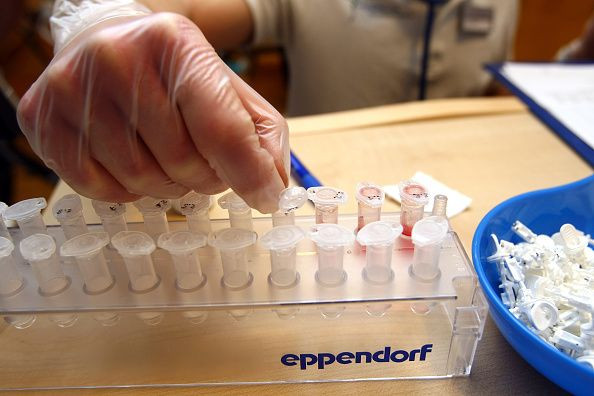CRISPR Treatment For Sickle Cell Disease: First American To Receive Is Mother-Of-Four

A 34-year-old woman has become the first American known to have undergone a treatment that uses a controversial gene editing technology to treat a genetic disorder.
Victoria Gray, of Forest, Mississippi, had the landmark treatment at the Sarah Cannon Research Institute in Nashville, Tennessee as part of a study that aims to test the use of the CRISPR gene editing technology for a genetic disease.
Gray has sickle cell disease, a condition that affects about 100,000 people in the United States and more commonly affects African Americans like her.
Sickle cell disease is a genetic disorder that makes the bone marrow produce a defective protein that causes sickle-shaped blood cells to become hard and sticky.
This causes the deformed cells to be stuck inside blood vessels and prevents them from transporting oxygen normally. Sickle cell disease causes a host of complications. Patients are at increased risk of infections, damage to vital organs, and life threatening strokes.
Gray herself has already suffered heart damage.
Many patients do not live past their 40s.
Doctors hope that the experimental CRISPR technology may change all these by changing the patient’s DNA so it produces a protein patch for the condition.
For the experimental procedure, doctors use cells taken from the patient’s bone marrow that was genetically modified using CRISPR so it can produce protein that is usually only made by fetuses and babies for a short time after birth.
The idea is that the protein will compensate for the defective protein associated with sickle cell disease and thus allow patients like Gray to live normally for the rest of their lives.
It will, however, take months and even years after the procedure before doctors would know if the treatment is safe and effective.
Doctors involved in the study also acknowledged the risks of experimental treatments, albeit these are closely reviewed by the Food and Drug Administration and other advisory panels.
Gray, a mother of four children who has to bear agonizing and debilitating pain because of her condition, said she understands the risks. She also said the treatment gives her hope.
"I always knew something had to come along and that God had something important in store for me," Gray said in an interview with NPR. "It felt like this was meant to be. It was kinda fate. That was an amazing feeling."
© Copyright IBTimes 2025. All rights reserved.





















